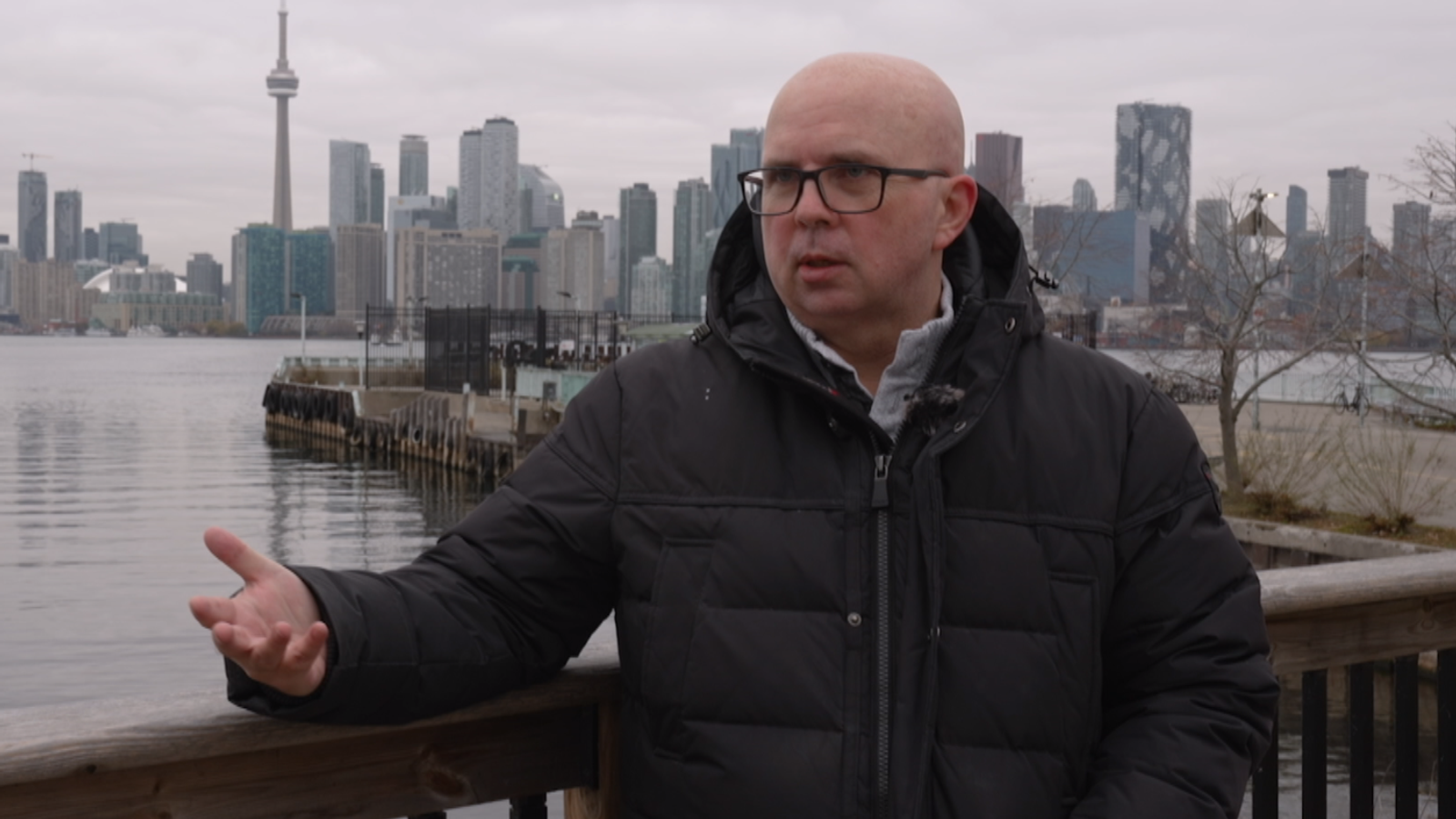Warning: This article contains references to suicide
On Friday this week, MPs will debate if England and Wales should legalise assisted dying.
The proposed legislation restricts it to adults with six months or less to live.
Canada introduced assisted dying in 2016 for adults with a terminal illness. In 2021, it was extended to people with no terminal illness and the disabled.
On 17 March 2027, anyone with a serious mental health problem will also be eligible.
Campaigners in Canada argue that the programme, known as MAID [medical assistance in dying], has gone too far.
Orlando Da Silva has struggled with crippling depression since he was a nine-year-old boy.
The high-flying Ontario lawyer is 56 years old now and has tried to take his own life a number of times.
He says if MAID had been offered to him when he was at his lowest, he would have taken the option to end his life.
But he argues that people like him need help with their condition – not help to die.
“You just think you’re a worthless little boy and eventually a worthless teenager, and then one day, a worthless man,” Orlando says, describing the impact of his mental health on his childhood and later into his adult life.
Please use Chrome browser for a more accessible video player

1:34
Assisted dying: Lessons from Canada
Working as a top barrister in the province of Ontario helped Orlando. It was a distraction from the suicidal thoughts that would overwhelm him when he left his office on the 47th floor of a downtown Toronto skyscraper.
“If you could measure it on a scale of zero to 10 [where] 10 is the happiest you’ve ever been, and zero is suicidal, my cruising altitude is about five or six, so I rarely get better than that.”
Spreaker
This content is provided by Spreaker, which may be using cookies and other technologies.
To show you this content, we need your permission to use cookies.
You can use the buttons below to amend your preferences to enable Spreaker cookies or to allow those cookies just once.
You can change your settings at any time via the Privacy Options.
Unfortunately we have been unable to verify if you have consented to Spreaker cookies.
To view this content you can use the button below to allow Spreaker cookies for this session only.
👉 Listen to Sky News Daily on your podcast app 👈
Orlando has received almost all of the conventional therapies available for his condition.
“Now I have a condition called treatment-resistant depression, which means I’ve been on more than 40 different kinds of antidepressants. I’ve had 13 electroconvulsive shock treatments. I’ve been on ketamine treatments. And nothing works.
“So the critical problem for me with this condition is that it escalates into a major depressive episode every 18 to 24 months.”
Please use Chrome browser for a more accessible video player

1:40
What happens if assisted dying bill passes?
Safeguards in place for Orlando
He says he has now learned how to manage his depression by reminding himself that the cycle will eventually end no matter how impossible the situation might feel at the time.
“I just push myself through one day at a time. Sometimes it’s one hour at a time, one minute at a time, one breath until the next one. Because I know it doesn’t last forever, but when I’m in that moment, I think it will, and there’s nothing anyone can say to convince me.”
Read more:
Why is assisted dying so controversial?
Wes Streeting to vote against assisted dying
Please use Chrome browser for a more accessible video player

2:43
MPs split ahead of assisted dying vote
He also has safeguards in place designed to protect him from himself.
“I’ve developed tools and a support network and even a 10-point scale that I share with my family and friends, so they can see how I’m doing, and they know I’m at a three or below, it’s time for an intervention.”
Orlando nearly died in 2008 after a failed suicide attempt. It led to six months in hospital.
He is now using his experience to try and help others like him who might choose an assisted death when they are allowed to in just over two years.
“It scares me to death. If it was available earlier, I would have chosen it in 1994. I would have tried it and I would have asked for it in 2002, in 2004, in 2008 and when I attempted my suicide in 2012, in 2014. And I’m alive because it’s not available now and because I failed in 2008.”
Fears over Canada’s programme
The move to include mental illness in Canada’s assisted dying programme was delayed twice because of fears around the impact it will have on the country’s health system.
By offering people with mental health issues an assisted death, Orlando warns, it further reinforces their sense of worthlessness.
“You want the pain to end, right? And the last thing you need is someone in a white coat who says: ‘Well, I see it’s kind of rough for you. How about we help you and your life? Do you like that?
“Now, does that say you’re worthwhile if you hear that? Does that say you have value? Does that contradict that voice in your head? Or does it reaffirm and confirm it?”
“We need to help. We need to give hope. Don’t need an easy death, like I want us to be a better society than that. If they say we’re judged by how we treat our most vulnerable. How do we treat people with mental illness who want to die?”
Orlando’s struggle is not over. But for him life is worth living no matter how hard it gets.
“Thank God I didn’t succeed, thank God I failed because if I had succeeded, I would never have met my wife.
“I never would have had my three beautiful daughters. I never would have had the rewarding personal and professional career I’ve had since and I would never have learned all that’s beautiful in this world from them.”
Anyone feeling emotionally distressed or suicidal can call Samaritans for help on 116 123 or email [email protected] in the UK. In the US, call the Samaritans branch in your area or 1 (800) 273-TALK















Post comments (0)